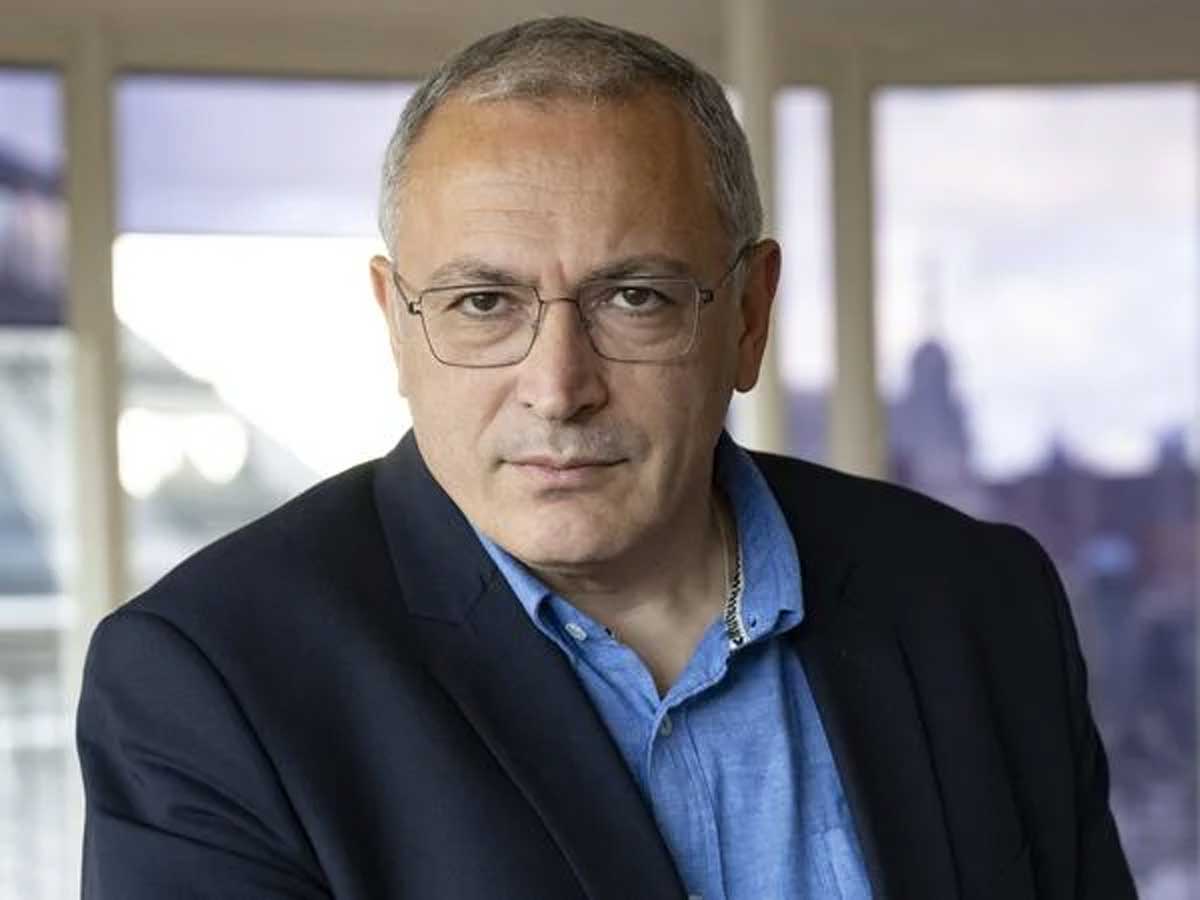Mikhail Khodorkovsky,Russian opposition leader: ‘The Europeans haven’t really understood Trump and Putin’
A refugee in London since 2015, Khodorkovsky analyses the balance of power between the leaders involved in the war.

Mikhail Khodorkovsky receives guests in his London office, a discreet address in a wealthy district of the centre of the British capital. The 61-year-old former boss of the Yukos oil group, who has become one of Russia’s main opponents of Putin, has been a refugee in the UK since he was pardoned by Putin at the end of 2013 after spending ten years in prison. With his short-cropped grey hair, he has the same thin face as in the photographs taken twenty years ago, when, brutally deposed, he faced the judges in his fraud trial, widely regarded as political.
On Tuesday 4 March, a few hours after US President Donald Trump announced the suspension of US aid to Ukraine, he shared with Le Monde and three other European media his thoughts on the crisis in transatlantic relations and the misinterpretations, from his point of view, of Europeans and Ukrainians regarding the practices of the American and Russian presidents, Donald Trump and Vladimir Putin.
Once Russia’s richest man in the early 2000s and, at the time, close to the Kremlin, Khodorkovsky now believes “Europeans really haven’t understood Putin and Trump,” he said. “They are leaders of a special kind. Imagine if the British prime minister announced that he wanted to acquire Greenland. We’d either think he was crazy or expect him to send in the British army. It’s nothing like that with Trump. What he says is just words, often subterfuge to distract people.”
The ex-businessman turned defender of civil liberties said Putin has a “similar style”: One day he says he has nothing against Ukraine, two months later, he launches an invasion of the country. “Both leaders have gangster methods. In Putin’s case, I know where it comes from, in Trump’s, less so. Maybe because he started his career as a real estate developer in a very difficult market, in New York?” Khodorkovsky said in Russian, an interpreter at his side.
Europeans turn a deaf ear
In his eyes, Putin’s or Trump’s words on Ukraine “mean nothing. Trump hasn’t given in on anything yet. We won’t have an idea of how the game ends until we see their cards on the table. If you want Trump to act in your interests, you have to show him that your interests are aligned with his.” This, according to the former business executive, is the yardstick by which to measure the Ukrainian minerals deal that the American president wants: “It is a way for Trump to combine his interest with the preservation of Ukraine.” Khodorkovsky said that Ukrainian President Volodymyr Zelenskyy didn’t understand what the Europeans were telling him, namely that they wouldn’t be able to support him without American help.
“He thought he had room to negotiate with Washington,” he said.
Khodorkovsky also pointed to misunderstandings between Americans and Europeans: “For the last 10 years, the US has sent them the same message: their attention is turning to the Indo-Pacific region, and Europeans need to be more concerned about their own security. But they have turned a deaf ear.” For all that, the US is mistaken if it thinks it no longer needs the Europeans, particularly if the latter were to turn to China. “They should go to Trump with a list of the problems they could cause him, offering him deals,” suggested the former businessman.
Khodorkovsky is rather pessimistic about the outcome of the war. Losing Crimea or the occupied Ukrainian regions of Luhansk and Donetsk would be the only situation considered failure by Putin, he believes, “because the president would find himself with 1 to 2 million refugees in Russia, and he wouldn’t be able to hide their presence despite his propaganda. But as these territorial losses are highly improbable, we can consider that he won’t lose this war.”
‘Nightmare for the Russians’
But the consequences for Europe of a Putin victory are grim, in his view. If a ceasefire is reached, the war stops at the current front line, and in that case, if Europe rearms Ukraine to the point of dissuading Putin from relaunching the conflict, a form of cold war sets in, with periods of escalation and de-escalation, until an eventual regime change, “perhaps in 10 years’ time.” “That’s the best-case scenario,” Khodorkovsky said.
If Putin gets his hands on most of Ukraine, “there will be war in Europe again within two years,” the former Yukos owner predicted. If the American president reaches an agreement with him, “maintaining the current demarcation line, the right for Ukraine to remain a sovereign country and to receive Western aid, then Trump will really have deserved the Nobel Prize,” Khodorkovsky added.
The man who says he is now working to ensure that Russia’s elites “keep a link with the West” insisted: “This war is a nightmare for Russians. Almost 80% of the population have family links with Ukraine. I was born in Moscow, my parents too, but my whole family comes from Ukraine and before the war, my cousin lived [in the Ukrainian city of] in Kharkiv,” he said.
The article by Cécile Ducourtieux (London, correspondent) was originally published in Le Monde



